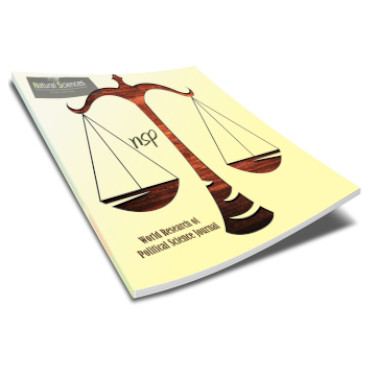
The World Research of Political Science Journal
Abstract
Globalisation is a term that defines a diversity of accelerating economic, political and cultural processes that are rapidly altering our familiarity of the world (35). Scholars have intensively examined the impact on globalisation on –both- the economic and political aspect. However, the cultural dimension of globalization which explores the expansion of cultural flows across the globe has not been thoroughly examined. Thus, the purpose of this paper is to critically assess the impact of globalisation on a modern nation-states’ culture. Taking Egypt as a case study, the paper will argue that the Egyptian culture has been negatively affected by globalisation which was noticeable in the declining role of Arabic language and the highly westernised identity among youth that slowly oppressed the authentic Egyptian identity. The paper will be divided into four sections. The first section will introduce the concept of culture and globalisation, in addition, theory of social constructivism by Alexander Wendt will be utilized from a top-down approach to explain how the values of globalisation trickled down into Egyptian society. The second section will explain the negative impact of globalisation on Egypt. The third section will tackle the alternation of the Egyptian identity and language into a globalized modern identity. Finally, the fourth section will draw analysis of the aforementioned with respect to the chosen theory.
Recommended Citation
Hisham Salah Ali, Sarah
(2018)
"Globalisation: The Threatening Tool to the Egyptian Identity and Sense of Nationalism,"
The World Research of Political Science Journal: Vol. 1:
Iss.
1, Article 5.
Available at:
https://digitalcommons.aaru.edu.jo/wrpsj/vol1/iss1/5

